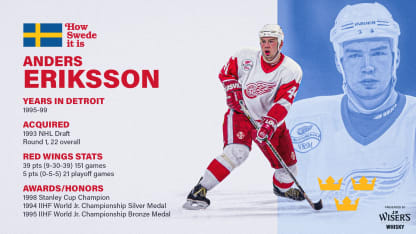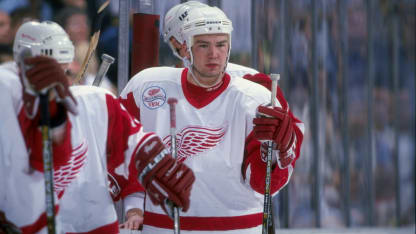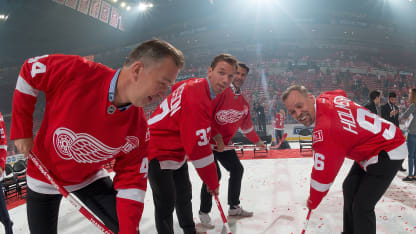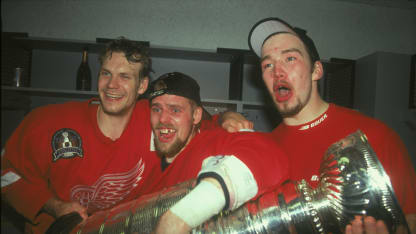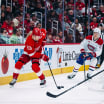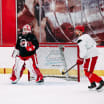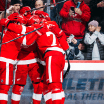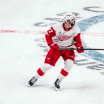On November 16 & 17, the Detroit Red Wings will face off against the Toronto Maple Leafs and Ottawa Senators at Avicii Arena in Stockholm, Sweden as part of the 2023 NHL Global Series. To commemorate this historic event and pay tribute to Detroit's Swedish connection, each week leading up to the Global Series, we will feature a Swedish Red Wings story in our series, 'How Swede It Is' presented by JP Wiser's. Each story is a testament to the dedication and resolve between the players and the Red Wings to build upon and maintain a tradition of excellence between Swedish hockey and the Red Wings. We continue our series with defenseman Anders Eriksson
Coming off back-to-back Stanley Cups in 1997 and 1998, the Detroit Red Wings were determined to give themselves every opportunity for a three-peat.
So on March 23, 1999, Detroit acquired forward Wendel Clark, goaltender Bill Ranford and defensemen Ulf Samuelsson and Chris Chelios.
Those four deals were the talk of the NHL, with the most surprising being the acquisition of Chelios, a longtime Detroit nemesis. That trade may not have happened if the Red Wings didn’t reluctantly part with up-and-coming young defenseman Anders Eriksson.
“When Chelios became available, Cheli wanted to go to one of two or three teams, we were one of them. (Chicago Blackhawks general manager) Bob Murray wanted Anders Eriksson as part of the package,” former Red Wings general manager Ken Holland said. “Being a first-round pick and being from Sweden, we were reluctant, but you’ve got to give to get. Probably if we don’t put Eriksson into the deal, I’m not sure if there is a deal.
“We had a glut of defensemen and Anders Eriksson never really got an opportunity to take a step. We won the Cup in ’97, we won the Cup in ’98, we were going for a three-peat. They wanted Eriksson as part of the deal. Anders was put in.”
At the time of the trade, Eriksson played 151 regular season games for the Red Wings in four seasons. He was a member of Detroit’s 1998 Stanley Cup-winning team, recording five assists, a plus-seven rating and 16 penalty minutes in 18 playoff games, and felt he was beginning to establish himself on Detroit’s blue line, but he understood why he was dealt.

